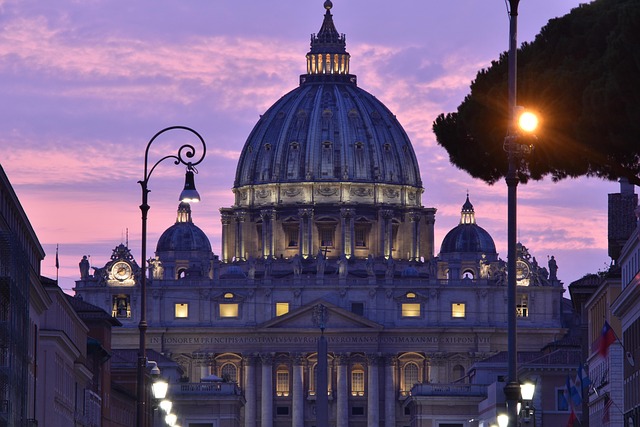
Pope Leo XIV's Vision: Embracing AI for a Modern Papacy
In May 2025, the Catholic Church witnessed a historic event with the election of Pope Leo XIV, the first American pontiff. (decrypt.co) In his inaugural address, Pope Leo XIV identified artificial intelligence (AI) as one of the most pressing challenges facing humanity. This blog post delves into his vision for the papacy, the ethical considerations surrounding AI, and the Church's role in guiding its development.

The Election of Pope Leo XIV
Pope Leo XIV, born Robert Prevost in Chicago, Illinois, was elected as the 267th pope of the Roman Catholic Church. His election marked a significant moment in Church history, not only due to his American heritage but also because of his background as an Augustinian friar and mathematician. (decrypt.co)
Pope Leo XIV's Inaugural Address
In his first formal audience with the cardinals, Pope Leo XIV emphasized the continuity of his papacy with that of his predecessor, Pope Francis. He pledged to uphold the inclusive mission outlined in Pope Francis' 2013 statement, "The Joy of the Gospel," and reaffirmed support for the reforms of the Second Vatican Council. (apnews.com)
AI as a Central Challenge
Pope Leo XIV highlighted AI as a critical issue, stating that it poses challenges to defending human dignity, justice, and labor. He drew parallels to Pope Leo XIII's advocacy on social issues during the industrial revolution, suggesting that the Church's social teaching is relevant in addressing the challenges posed by AI. (apnews.com)
Ethical Considerations in AI Development
The Vatican has been actively involved in discussions about the ethical implications of AI. In 2023, Pope Francis called AI "the highest-stakes gamble of our future" and urged that it be developed to serve humanity's best potential. (decrypt.co)
The Church's Role in Guiding AI
Pope Leo XIV's remarks indicate a proactive stance by the Church in guiding the ethical development of AI. This approach aligns with the Vatican's previous initiatives, such as the "Rome Call for AI Ethics," which was signed by major tech companies like Microsoft, IBM, and Cisco. (decrypt.co)
Public Reactions to the Vision
The announcement of Pope Leo XIV's vision regarding the integration of AI into the papacy has sparked diverse public reactions. Many view this technological embrace as a forward-thinking approach to modernize the papacy, potentially reaching a younger, tech-savvy demographic. (opentools.ai)
Conclusion
Pope Leo XIV's identification of AI as a central challenge reflects a modern papacy that seeks to engage with contemporary issues. By addressing the ethical dimensions of AI, the Church aims to ensure that technological advancements align with human dignity and the common good.

Further Reading
For more insights into Pope Leo XIV's vision and the Church's engagement with AI, consider the following articles:
-
Pope Leo XIV lays out vision of papacy and identifies AI as a main challenge for humanity
-
Pope Leo XIV sets out vision for papacy and cites AI as critical challenge facing humanity
-
Pope Leo XIV Warns AI Could Threaten Jobs, Fairness, and Dignity
-
Pope Leo XIV cites AI in first address, signalling a modern papacy
By exploring these resources, readers can gain a deeper understanding of the intersection between the Catholic Church and artificial intelligence.